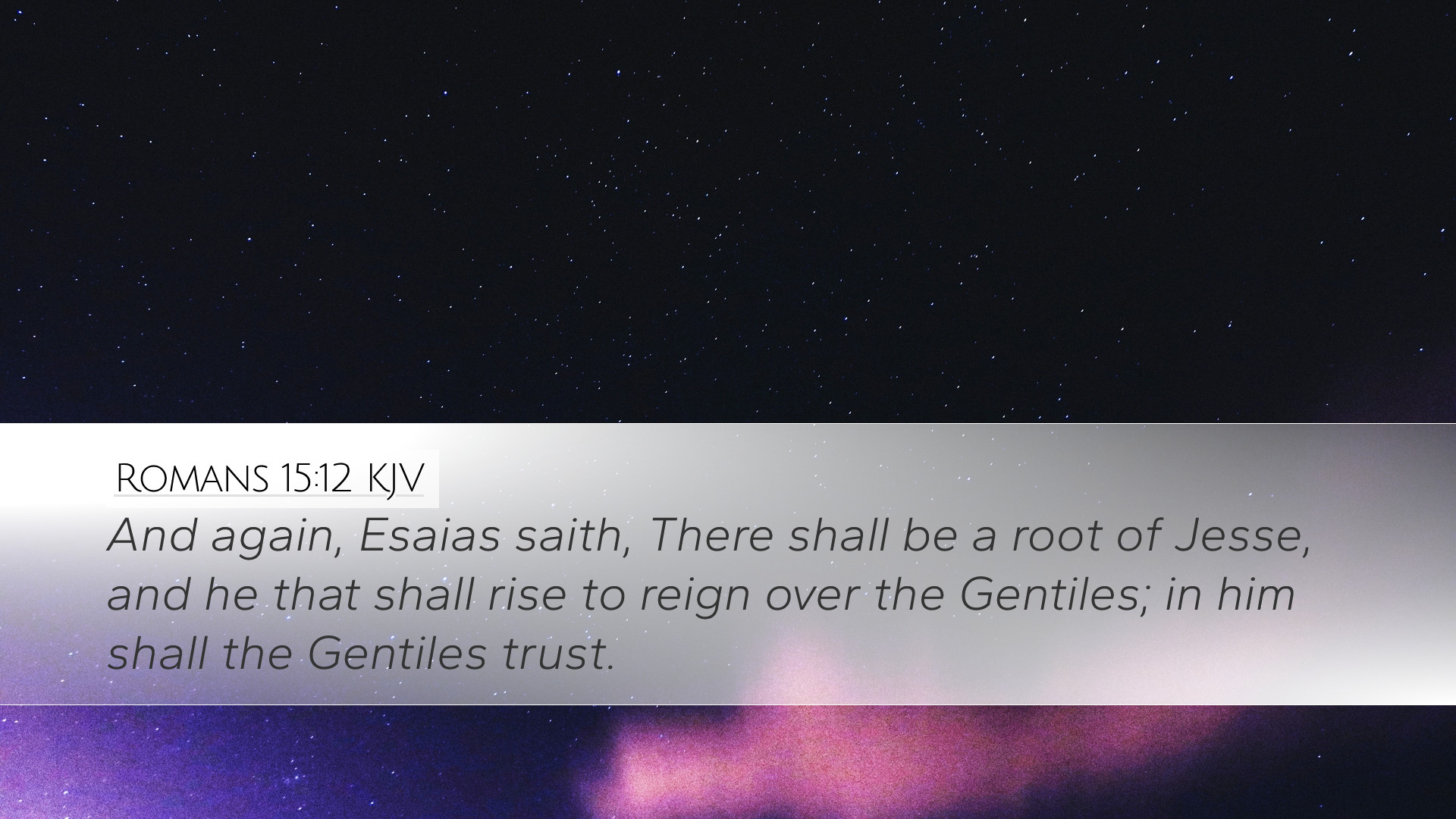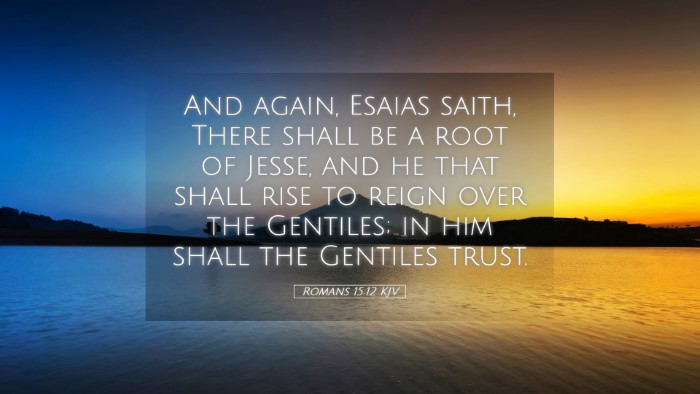Commentary on Romans 15:12
Romans 15:12 states:
"And again, Isaiah says, 'The root of Jesse will come, even he who arises to rule the Gentiles; in him will the Gentiles hope.'" (ESV)
Contextual Overview
This verse is part of the Apostle Paul's exhortation to the Roman church, emphasizing the inclusion of the Gentiles in God's redemptive plan. Paul references the Old Testament to underscore the prophetic nature of Christ's mission.
Exegesis and Interpretation
Paul's quotation from Isaiah serves multiple purposes:
-
Covenantal Continuity: Paul highlights the continuity of God's plan from the Old Covenant to the New. The mention of "the root of Jesse" connects Jesus to the Davidic line, fulfilling the promises made to Israel.
-
The Role of the Gentiles: By stating that the Gentiles will hope in Him, Paul emphasizes the universal scope of Christ's lordship. This ties to earlier passages where Paul discusses the breaking down of the wall of separation between Jews and Gentiles.
Insights from Matthew Henry
Matthew Henry notes that the “root of Jesse” speaks of humility and a hidden nature of Christ's origins, highlighting that He came from a lineage of obscurity. Despite this obscurity, God’s purpose was fulfilled through Him, reconciling both Jews and Gentiles.
Insights from Albert Barnes
Albert Barnes emphasizes the authority of Christ as the ruler of the Gentiles. He reflects on the implications of Gentiles having hope in Christ, pointing out that the hope mentioned is not just a superficial desire but deeply rooted in faith and trust in Jesus’ redemptive work.
Furthermore, Barnes interprets the phrase “arises to rule” as indicative of Christ's sovereignty, which extends beyond mere governance into the realm of spiritual authority and eternal kingship.
Insights from Adam Clarke
Adam Clarke discusses the socio-political implications of the passage. He argues that Paul's quoting of Isaiah serves to illustrate that God's grace is not limited to a specific ethnicity or social class. Clarke underscores that this message was revolutionary to a Jewish audience, as it dismantled preconceived notions of exclusivity in salvation.
Theological Implications
This verse encapsulates core theological themes:
-
Universal Salvation: The inclusion of the Gentiles reflects God's intention for salvation to transcend ethnic and cultural boundaries.
-
The Nature of Hope: The hope placed in Christ indicates a future assurance rooted in His resurrection and impending return.
-
Christ as the Fulfillment of Prophecy: The verse exemplifies how Christ fulfills the prophecies of the Old Testament, anchoring the Christian faith in historical and biblical context.
Application for Today’s Church
This passage has profound relevance for contemporary believers:
-
Embracing Diversity: Just as the early church was called to embrace Gentiles, modern congregations are encouraged to welcome believers from all backgrounds, reflecting the unity of the Body of Christ.
-
Extending Hope: The church today is commissioned to carry the message of hope to all, emphasizing the transformative power of the Gospel across various cultures and communities.
Conclusion
In Romans 15:12, Paul masterfully ties together the themes of God’s everlasting covenant, the universal nature of salvation, and the hope offered to all through Christ. It serves as a reminder to the church of its mission to proclaim this hope to every nation and people group, echoing the prophetic words of Isaiah and celebrating the unifying power of the Gospel.


